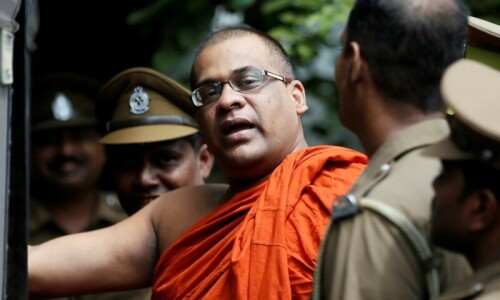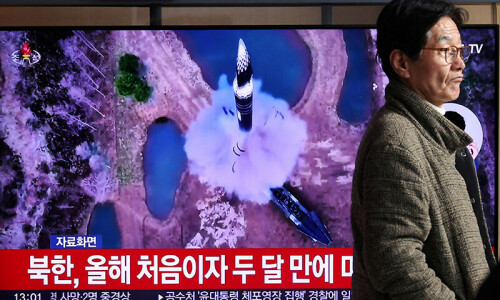How to describe the life of one of the greatest sons of Lahore? Metaphors may help. Lamp [Charag] and flower [Basant] hint at what kind of man Shah Husain aka Madho Lal Husain could have been. In commemoration of the poet-saint lamps are lighted every year in spring [This year was exception due to Covid-19]. Flame and spring define his inimitable life and work. No one in our spiritual and cultural tradition epitomizes the joyfulness of our people the way he does at intellectual and personal levels. His life was marked by zeitgeist. He was the most defiant man in a caste and class afflicted conformist society of his times.
In one of his short Kafis [lyrics] he reveals his identity: O, Girls! Husainu is a weaver, a weaver he is/ He has no principal, no profit is his / Neither he’s spoken for, nor married/ Neither knots tied, nor credit carried/ Neither a householder nor a voyager/ Neither a believer, nor a denier/He is what he is [Trans; Muzaffar Ghaffaar].
Three things are strikingly visible in the lyrics. One, he is described as Julaha, a weaver. Weavers are a low caste in hierarchy. He was a high caste Rajput. His father and mother were from Kalas Rai and Dhudi clans respectively. Since his father was a producer of textiles, he proudly placed himself among the low caste which implied total rejection of caste distinctions. He followed in the footsteps of Guru Nanak who had declared; “I am the lowest of the low”.
Two, he isn’t in the race of profit and loss. Thus he refuses to raise family. Family in a property driven society is actually a private limited company. It’s a miniature version of established order. Three, he is beyond religious denomination. He is defined neither by faith nor by unfaith.
“Haqiqat ul Fuqaraa”, a much quoted book, says that Shah Husain spent ten years of his youth shuttling between his home and seminary. He learnt the holy Quran from Maulvi Abu Bakar. During this period Shaikh Behlol, a great itinerant saint, came to Lahore and blessed young Husain. A turning point in his life came when he was learning hermeneutics from a well-known scholar Sadullah. He requested his teacher to explain the following Quranic verse; “And the life of this word is nothing but frivolity and play”. When teacher explained the verse, Shah Husain strangely concluded that life was little more than play, an interpretation that contradicted the traditionally accepted meanings. He stood up, left the seminary and started dancing in a state of ecstasy. Much before Herbert Marcuse he conceived life as playfulness. He shaved his beard and donned red robe. He would be seen dancing in the streets of Lahore drunk to the chagrin of clergy which perceived him as an upcoming religious scholar with promise gone astray.
“Haqiqat ul Fuqaraa” also tells us that he would spend his nights at the River Ravi in meditation. His unorthodox and controversial practice was bound to raise the orthodoxy’s hackles. It was reported to Emperor Akbar, who stayed at Lahore for fourteen years in two spells that a scholar turned Fakir defying Sharia openly drinks, sings and dances in public. Malik Ali, the chief of police, was ordered to perform the task of presenting Shah Husain in the royal court. He, puffed with pride, insulted Husain and threatened that he would nail his arse shut [traditional barbaric punishment]. It was ominously scary for the people to see a revered man being humiliated in public.
In the meantime a legendary rebel, Dullah Bhatti from Sandal Bar, was captured. Malik Ali was ordered by the Emperor to submit a verbatim report of what the rebel said in captivity. Dauntless Dullah Bhutti before swinging from the gallows profusely abused Akbar and royal family. The official being more loyal than king reported to the Emperor in the court what wasn’t reportable in any way. Emperor felt embarrassed and outraged because the official had totally disregarded the protocol. To the surprise of the people, the same punishment was inflicted on the official he had threatened Shah Husain with.
Prince Dara Shikoh, a great admirer of Shah Husain, talks of him twice in his book “Hasnat ul Aarifin”. He reported a scholar saying; “Abdul Hakeem said; ‘I went to him [Shah Husain] and requested that I be accepted as his disciple. Husain replied ‘you want to defame my reputation in the city? You are a Mullah, not cut out for this kind of [spiritual] activity’”. Dara Shikoh in the same book describes a stunning encounter between Husain and a rich cleric who wielded great power. “Shaikh Husain Dhuda displayed his ‘malamati’ practice [practice of self-deprecation that negates ego] with a bang. Makhdum ul Mulk ( Maulana Abdullah Sultanpuri ) wanted to punish him. He saw him in the bazaar of Lahore in the company of musicians. Shaikh [Husain] got hold of the reins of his horse and said; ‘I have a question. You answer it. Islam has five central tenets. I and you share belief in oneness of God. You have forsaken Haj [pilgrimage to Mecca] and zakat [religious tax]. I have forsaken prayer and fasting. How come I deserve punishment and you don’t’. Mullah kept silent and never again talked of punishing him”, writes Dara Shikoh.
Highlighting Shah Husain’s vision of life as playfulness he further writes; “Shaikh Husain Dhuda came to a meeting where people had Diwan of Hafiz Shirazi. ‘Which book is this’? He asked. ‘Diwan of Hafiz’, people replied. He opened the book and the page had a Ghazal with the verse; O, smiling bloom, discover my eye’s spring / in the hope of receiving you it has its water flowing freely”. He dropped the book to the ground and said ‘Hafiz too died crying like biddies’.
“Dara Shikoh shows us another glimpse of Husain’s life shared with him by people who knew much about him. “Strange were his ways. Clean-shaven, accompanied by singers and musicians, he would stroll around the city from morning till evening. No one could dare confront him”. Shah Husain’s inexhaustible passion for poetry, music and dance flowed from his vision of life marked by playfulness. Playfulness defines both his life and poetry. It’s a recurrent theme in his lyrics. “Play and laughter are the assets gifted to us by the Lord himself”, he announces. — soofi01@hotmail.com
Published in Dawn, April 5th, 2021














































Dear visitor, the comments section is undergoing an overhaul and will return soon.